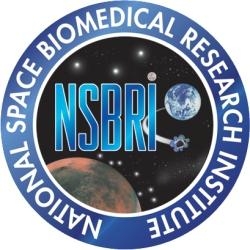Thu, Jun 21, 2012
Each Scientist Will Focus On A Specific Area Of Human Space Flight
The National Space Biomedical Research Institute (NSBRI) has enlisted seven of the nation's top scientists to serve as team leaders in its efforts to protect astronaut health during long-duration spaceflight. Each of the scientists will lead one of NSBRI's seven discipline area research teams focused on specific challenges faced by humans in space.

"NSBRI's position at the forefront of space biomedical research will be enhanced with these outstanding scientists serving as team leaders," said Dr. Jeffrey P. Sutton, NSBRI president and CEO. "Their expertise and knowledge will be beneficial to the Institute, NASA and human spaceflight in general. They will play an instrumental role in our efforts to overcome health challenges facing humans while in space and to improve health care on Earth."
The team leaders are responsible for reporting on their teams' research projects and working closely with the NSBRI Science Office and NASA to ensure alignment with operational needs. The team leaders' term is for three years and they must also have a currently funded NSBRI research project.
The NSBRI teams address space health concerns such as bone loss and muscle weakening, balance and orientation problems, neurobehavioral and psychosocial problems, radiation exposure, remote medical care and research capabilities, and habitability and performance issues during spaceflight.
The team leaders and their institutions are:
Cardiovascular Alterations Team
- Dr. Benjamin D. Levine, University of Texas Southwestern Medical Center at Dallas Human Factors and Performance Team
- Dr. Elizabeth B. Klerman, Harvard Medical School-Brigham and Women's Hospital Musculoskeletal Alterations Team
- Dr. Lori Ploutz-Snyder, Universities Space Research Association Neurobehavioral and Psychosocial Factors Team
- Dr. David F. Dinges, Perelman School of Medicine at the University of Pennsylvania Radiation Effects Team
- Dr. Ann R. Kennedy, Perelman School of Medicine at the University of Pennsylvania Sensorimotor Adaptation Team
- Dr. Charles M. Oman, Massachusetts Institute of Technology Smart Medical Systems and Technology Team
- Dr. Gary E. Strangman, Harvard Medical School-Massachusetts General Hospital
NSBRI, funded by NASA, is a consortium of institutions studying the health risks related to long-duration spaceflight and developing the medical technologies needed for long missions. NSBRI's science, technology and education projects take place at more than 60 institutions across the United States.
More News
Airbus Racer Demonstrator Makes Inaugural Flight Airbus Helicopters' ambitious Racer demonstrator has achieved its inaugural flight as part of the Clean Sky 2 initiative, a corners>[...]
A little Bit Quieter, Said Testers, But in the End it's Still a DA40 Diamond Aircraft recently completed a little pilot project with Lufthansa Aviation Training, putting a pair of >[...]
Line Up And Wait (LUAW) Used by ATC to inform a pilot to taxi onto the departure runway to line up and wait. It is not authorization for takeoff. It is used when takeoff clearance >[...]
Contributing To The Accident Was The Pilot’s Use Of Methamphetamine... Analysis: The pilot departed on a local flight to perform low-altitude maneuvers in a nearby desert val>[...]
From 2015 (YouTube Version): Overcoming Obstacles To Achieve Their Dreams… At EAA AirVenture 2015, FedEx arrived with one of their Airbus freight-hauling aircraft and placed>[...]
 Airbus Racer Helicopter Demonstrator First Flight Part of Clean Sky 2 Initiative
Airbus Racer Helicopter Demonstrator First Flight Part of Clean Sky 2 Initiative Diamond's Electric DA40 Finds Fans at Dübendorf
Diamond's Electric DA40 Finds Fans at Dübendorf ANN's Daily Aero-Term (04.23.24): Line Up And Wait (LUAW)
ANN's Daily Aero-Term (04.23.24): Line Up And Wait (LUAW) NTSB Final Report: Extra Flugzeugbau GMBH EA300/L
NTSB Final Report: Extra Flugzeugbau GMBH EA300/L Classic Aero-TV: 'Never Give Up' - Advice From Two of FedEx's Female Captains
Classic Aero-TV: 'Never Give Up' - Advice From Two of FedEx's Female Captains



